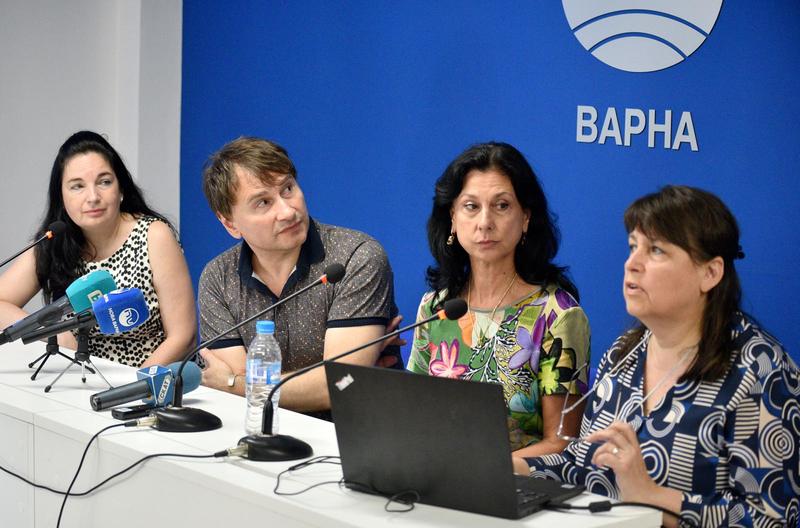Julian Popov: Long-term policies should be based on scientific research, not on social media behaviors
22 Aug, 2023 | 15:49
- The Black Sea is a unique ecosystem, but we need to have the big picture to be able to adequately protect it.
- When research similar to that of the Varna scientists comes out, the ministry is committed not only to enhance its publicity, but also to develop policies on its basis.
A problem of policy development in our country is very often the lack of in-depth scientific research. One often reacts to behaviors on social media, to momentary moods, and the development of long-term policy should be based on scientific research. This was said by the Minister of Environment and Water Julian Popov during a meeting, whereby the report by the Institute of Oceanology at the Bulgarian Academy of Sciences was presented on the current state of Black Sea environment inland and in proximity to the Bulgarian coast.
The director of the scientific unit associate professor Nikolay Valchev, the head of the Basin Directorate “Black Sea Region” Yavor Dimitrov, the director of the Regional Inspectorate for Environment and Water in Varna Erdzhan Sebaitin took part in the discussion. The event was hosted by the National Press Club of Bulgarian Telegraph Agency in Varna.
Julian Popov described the report by the Institute of Oceanology on the state of the Black Sea as very detailed. According to him, the research does not only look at individual beaches or areas, but looks at the big picture, gives the trends. The Black Sea is a unique ecosystem, but in order to adequately protect it, we must have the big picture, added Popov. The Minister made a commitment that when similar research is published, the ministry will not only contribute to its publicity, but also develop policies on this basis.
The latest data from scientists show that there are 26 invasive species in the Black Sea. One part of them - nine, are crustaceans, the rest are zoobenthic. These facts were presented by Prof. Valentina Todorova from the Institute of Oceanology at the Bulgarian Academy of Science, who together with Assoc. Prof. Kremena Stefanova presented the report by the scientific unit. Alien species can present a risk to biodiversity. Two of them have a serious impact on local biodiversity and the Black Sea food chain - rapana and Mnemiopsis lady. Rapana was introduced to the Black Sea in the 1940s. For about 15 years it spread everywhere along the coast. The appearance of these snails is associated with the disappearance of the edible oyster and the sharp decline of the black clam and scallop. Today, the distribution of rapana off the Bulgarian coast is limited to about 45 meters in depth, with the largest being at 10-20 meters.
When asked about pollution of the sea from the Nova Kakhovka dam, which was destroyed in Ukraine, Minister Julian Popov categorically stated that there is no such thing. Yavor Dimitrov, director of the Black Sea Region Basin Directorate added that to date there has been no excess in any of the indicators monitored by the experts, including heavy metals, pesticides, and petroleum products. He specified that an expedition was made along the entire Bulgarian coast and the data from all sampling points were completely normal. Dimitrov recalled that there are three sampling points along the Northern Black Sea coast - in front of Durankulak, Shabla and Kaliakra.
Individual cases should not lead to general conclusions, said Julian Popov regarding the results presented by civil organizations on the state of the sea and beaches in our country. He gave an example with a report of severe pollution on the beaches near Pomorie, for which the entire resource of various state institutions in Burgas was mobilized. In the end, it turned out that there was pollution in one place somewhere on the beach, someone took a picture of it, and social media distorted the information and caused reactions, explained the minister and specified that in this way a small fact led to a wave of criticism and panic.
Any research by civil society organizations should be taken into account, he added. However, according to him, the objectivity of the results should be discussed with the relevant institutions that conduct research according to known and established methodologies.


